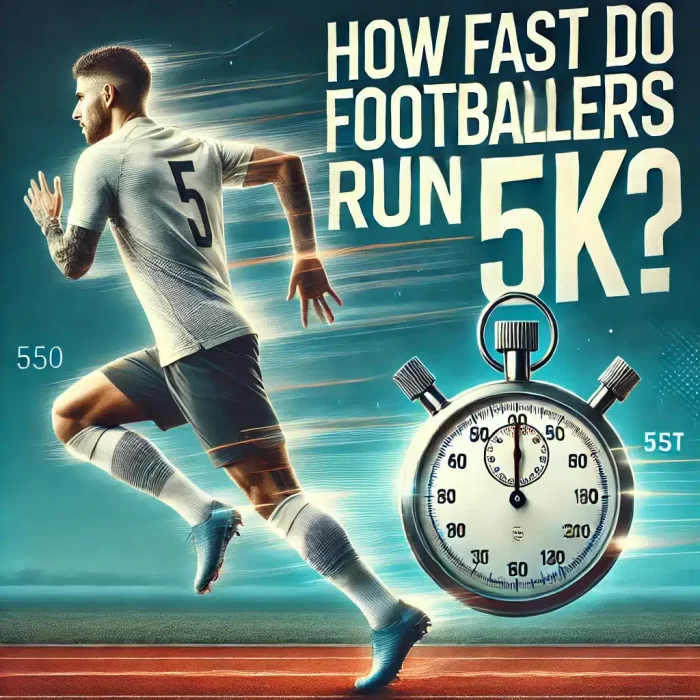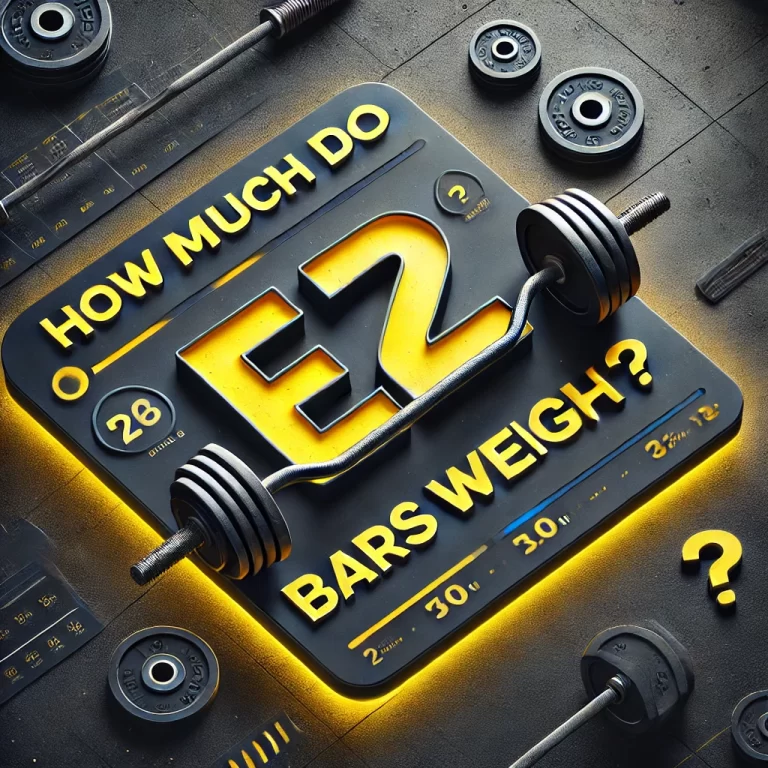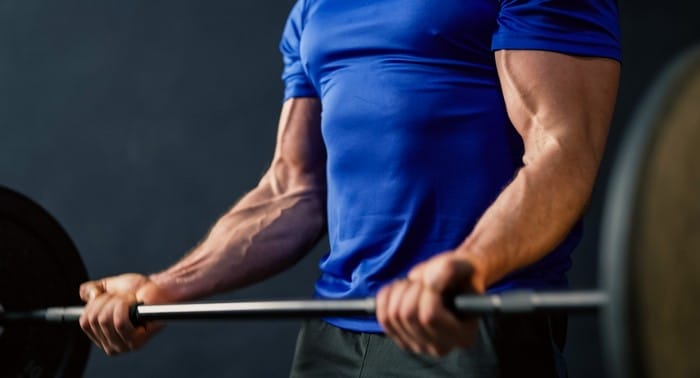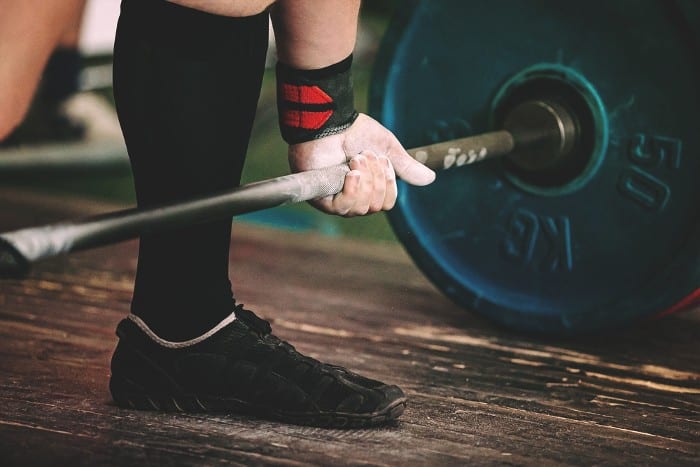How Fast Do Footballers Run 5k?
Footballers are some of the fittest and most explosive athletes out there. They spend 90 minutes darting across the pitch, sprinting, cutting, and battling fatigue while covering an average of 10-12 kilometers per match. But what happens when you take away the ball, the tackles, and the constant changes in direction? How fast can a footballer complete a 5K (5 kilometers or 3.1 miles) in a straight-up endurance race?
At first, it might seem like footballers wouldn’t be the best at long-distance running. After all, their game is built around short bursts of speed rather than steady pacing. But thanks to elite cardiovascular fitness, insane VO2 max levels, and relentless training, many are surprisingly fast over 5K distances.
So, how do they stack up against professional distance runners? Could an amateur runner keep up with them? And does a striker, midfielder, or defender have the best shot at posting the fastest time? Let’s dive in and see just how fast footballers can run a 5K.
How Fast Do Professional Footballers Run 5K?
On average, professional footballers complete a 5K in 16 to 20 minutes, depending on their position, playing style, and fitness level.
- Elite-level footballers: Can hit times between 15:00 – 17:30 minutes—these are the top-tier athletes with outstanding endurance.
- Average professional footballers: Typically finish in 17:30 – 20:00 minutes, still incredibly fast compared to the general population.
- Amateur or semi-pro footballers: Usually land in the 20:00 – 22:30-minute range, which is still solid but closer to well-trained recreational runners.
For comparison, elite long-distance runners can smash a 5K in under 13 minutes, while a fit recreational runner might complete it between 18 to 25 minutes.
So, while footballers aren’t quite at the level of Olympic distance runners, they’re still clocking in times that put them well ahead of the average person. Their mix of speed, endurance, and interval-based training allows them to maintain an impressive pace over a 5K, even if their primary focus isn’t long-distance running.
Factors That Affect Footballers’ 5K Times
Not all footballers will run a 5K at the same pace. Their position, training methods, and style of play all play a role in their endurance and speed over longer distances. Here are the key factors that impact their 5K times:
1. Position on the Field
Some positions demand much more running than others. Midfielders, for example, cover the most ground during a match, often logging 11-12 km per game, making them naturally strong distance runners. Here’s how different positions compare:
- Midfielders: The fittest players on the pitch. They need both endurance and speed, making them the most likely to post the fastest 5K times.
- Wingers & Full-backs: Extremely quick and agile, wingers and full-backs frequently sprint up and down the pitch, which builds solid endurance.
- Forwards & Strikers: Known for their explosive speed rather than sustained endurance. Their 5K times might be slightly slower.
- Defenders: While they maintain good fitness, center-backs, in particular, don’t cover as much distance as midfielders, so their endurance may not be as high.
- Goalkeepers: The least likely to excel in a 5K race. Since they cover minimal ground during a match, their endurance training is far less intense than outfield players.
2. Sprint vs. Endurance Training
Footballers are built for high-intensity sprints rather than steady-state endurance running. Their training involves explosive movements, short bursts of acceleration, and interval work rather than long-distance runs. While this makes them incredibly fast, it may limit their ability to maintain top speeds over 5K compared to specialized distance runners.
3. VO2 Max and Cardiovascular Fitness
VO2 max is a measure of how efficiently the body uses oxygen. The higher the VO2 max, the longer an athlete can sustain intense activity. Footballers typically have a VO2 max in the range of 55-70 ml/kg/min, which is on par with elite endurance athletes. This allows them to run a fast 5K despite not specializing in distance running.
4. Game Fitness vs. Race Fitness
There’s a big difference between being fit for football and being fit for a race. Footballers train for short, high-intensity efforts over 90 minutes, while long-distance runners focus on maintaining a steady pace. A footballer might excel in a high-paced interval race but struggle with pacing strategy over 5K compared to a trained runner.
5. Running Efficiency and Mechanics
Footballers aren’t necessarily trained in distance running mechanics. Their form is optimized for acceleration, agility, and rapid directional changes rather than a smooth, efficient running stride. This means they may not have the same energy-saving technique that elite distance runners rely on, which can slightly impact their 5K times.
How do Footballers compare to Other Athletes in 5K Races?

Footballers are undeniably fast, but how do they measure up against other top-tier athletes when it comes to pure 5K performance? Here’s a breakdown:
| Athlete Type | Average 5K Time |
|---|---|
| Elite long-distance runner | 12:30 – 13:30 mins |
| Professional footballer | 16:00 – 20:00 mins |
| Amateur footballer | 20:00 – 25:00 mins |
| Recreational runner | 20:00 – 30:00 mins |
| General athlete (non-runner) | 22:00 – 30:00 mins |
Key Takeaways
- Elite distance runners are in a completely different league, maintaining speeds that even the fittest footballers would struggle to match.
- Professional footballers are significantly faster than the average runner and most non-endurance athletes, thanks to their rigorous fitness training.
- Amateur and semi-pro footballers fall closer to the range of dedicated recreational runners but still tend to have a speed edge.
- Athletes from other sports may have solid speed, but without endurance-focused training, their 5K times typically fall short of footballers’.
So, while footballers won’t be setting world records in 5K races anytime soon, they still hold their own compared to other athletes, thanks to their elite aerobic capacity, speed, and overall athleticism.
Can a Regular Person Run a 5K as Fast as a Footballer?
If you’re a fit runner with solid endurance training, you might be able to match an average footballer’s 5K time (18-22 minutes). However, breaking into the 16-minute range which is where top professionals clock in requires a combination of elite-level speed, endurance, and training intensity.
To match a footballer’s 5K time, you’d need to focus on:
- High-intensity interval training (HIIT) – Footballers train in short, explosive bursts, making HIIT a key component.
- VO2 max improvement – Hill sprints and tempo runs can increase oxygen efficiency.
- Strength and mobility work – Footballers incorporate strength training to improve overall athleticism, which helps with power and endurance.
- Speed endurance sessions – Mixing sprints with steady runs helps develop the ability to maintain a high pace over 5K.
So, can the average person keep up with a footballer?
With serious training, a dedicated runner could match or even beat a footballer’s time, but it would take structured endurance work and a commitment to improving both speed and stamina.
Final Verdict: How Fast Do Footballers Run 5K?
Professional footballers complete a 5K in around 16-20 minutes, depending on their position and fitness level. Midfielders and wingers tend to have the best endurance, while strikers and defenders focus more on short bursts of speed.
While footballers are incredibly fit, their training is geared more toward explosive movements rather than steady endurance running. Still, their 5K times are impressive and comparable to highly trained amateur runners.
If you’re looking to train like a footballer and improve your 5K time, focusing on speed work, VO2 max training, and endurance intervals can help you get closer to their level.






